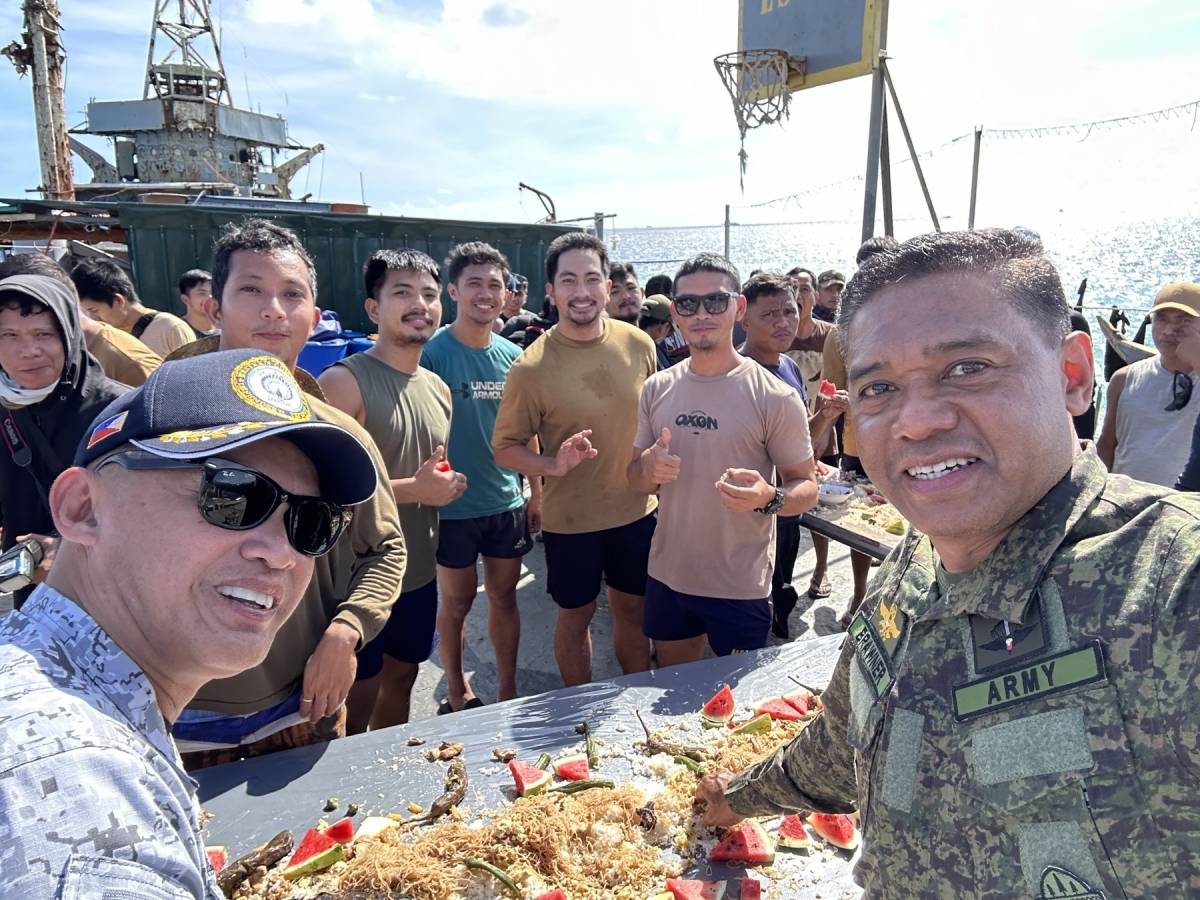(UPDATED) MANILA, Philippines: The Chief of the Armed Forces, Gen. Romeo Brawner, recently encountered a troubling incident at sea when the boat he was aboard was subjected to water cannoning by a Chinese Coast Guard vessel on Sunday.
Brawner was on the Unaizah Mae 1, which was en route to deliver supplies to soldiers stationed at the BRP Sierra Madre in Ayungin (Second Thomas) Shoal when the incident occurred.
He had sought permission from President Ferdinand Marcos Jr. to check on the troops and bring them Christmas gifts, and the President granted him the go-ahead.
When asked if he was scared by the Chinese coast guard’s harassment, Brawner responded, “No, but I’m angry because of what they did. I think they didn’t know I was on board.”
Despite efforts to avoid confrontation, Brawner expressed concern over the continuous harassment from China, stating, “It’s dangerous, it’s dangerous.”
Vice Admiral Alberto Carlos, Commander of the AFP’s Western Command, and other AFP personnel accompanied Brawner on the Unaizah Mae 1.
Highlighting the significance of the troops stationed at the BRP Sierra in Ayungin Shoal, Brawner emphasized, “We give importance to their presence because it symbolizes our sovereign rights in our exclusive economic zone.”
The collision between the Unaizah Mae 1 and the CCG vessel occurred on Sunday, with both countries blaming each other for the incident.
This collision followed the Philippines’ accusation that the Chinese coast guard had used water cannons to obstruct three government boats delivering provisions to Filipino fishermen near Scarborough Shoal, off the main island of Luzon.
These incidents highlight the ongoing tensions in the South China Sea, where multiple countries have competing territorial claims. Ayungin Shoal and Scarborough Shoal are both areas of contention between the Philippines and China.
The United Nations Convention on the Law of the Sea (UNCLOS) grants countries exclusive economic zones (EEZs) extending 200 nautical miles from their coastlines. These zones give countries exclusive rights to explore and exploit the natural resources within them.
However, China’s expansive claims in the South China Sea have led to disputes with neighboring countries, including the Philippines. The Philippines has sought international arbitration to resolve these disputes and uphold its rights under UNCLOS.
China, on the other hand, has rejected the arbitration and asserts its historical claims over the disputed areas. This has resulted in frequent encounters between Chinese and Philippine vessels in the region.
The recent harassment of the Philippine Armed Forces chief at sea underscores the need for peaceful resolution and adherence to international laws and norms. It serves as a reminder of the challenges faced by countries in the region as they navigate complex geopolitical dynamics.
Efforts to maintain stability and uphold the rule of law in the South China Sea require continued diplomatic engagement and multilateral cooperation. The international community plays a crucial role in encouraging dialogue and promoting peaceful solutions to prevent further escalation of tensions in the region.
As the situation evolves, it is essential for all parties involved to prioritize open communication, respect for international law, and the peaceful resolution of disputes. Only through such efforts can lasting peace and stability be achieved in the South China Sea.







